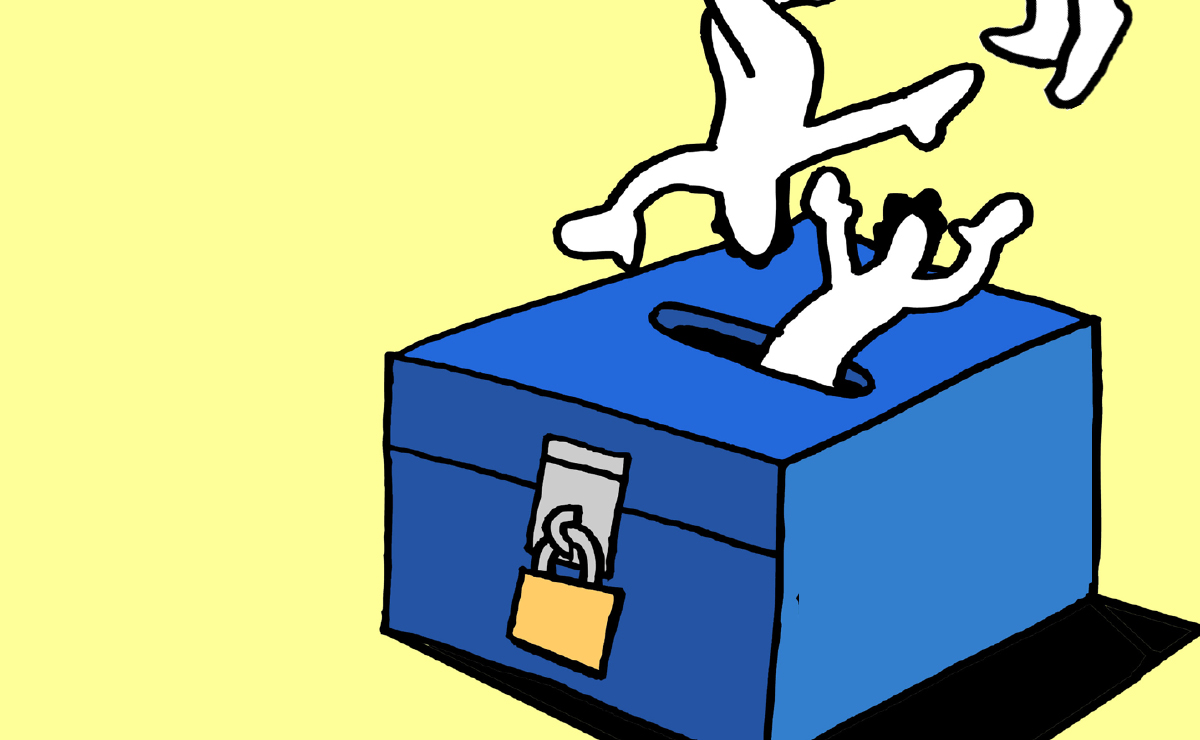
It’s that time of year again: time to vote for your student representatives, or become one yourself. Although you might not think of yourself as a politician, the University of Victoria Students’ Society (UVSS) needs you. Their $15.5 million per year portfolio, made up in no small part by your student fees, is allocated and managed by the people that get elected next month.
With the deadline for nominations coming up on Feb. 10, it’s time for students to step forward. But year after year, we watch as very few people run in the elections. And when students do put their names forward, the majority come from the same predictable places.
Out of the 21 current directors, a whopping 11 are studying political science — including all of the five Lead Directors. There is exactly one person from engineering. With such a large amount of money on the line, why is the UVSS, as one student put it, “run by 10 poli-sci gargoyles who never leave the SUB“?
While managing this huge sum of money and networking with some of the most important people on campus, the UVSS board’s Lead Directors also make a full-time wage and often use the position as a co-op job. Even Directors-at-Large, who assist Lead Directors on a part-time basis, receive a $50 honorarium with a new policy put in place this year.
In previous years, candidates could run either independently or as a slate, with candidates running together for every position on the UVSS board and typically sweeping the entire election with just people from their group. This year, you can only run as an independent candidate or in a cooperative (a group of two or more candidates), hypothetically making it easier than ever to be one step closer to controlling $15.5 million and dictating the direction the UVSS takes for the next year.
Slates typically operated as mini political parties, which were typically full of students with nearly identical campaign policies and sometimes even matching t-shirts. Between May 2016 and May 2019, everyone on the board was from a slate that ran on a purple logo with a peppy, similar-sounding name like Energize, Envision, Engage, or Encompass.
Last year, the Hear UVic slate beat out Engage for every position except for Director of International Student Relations, which was acclaimed since only a candidate from Engage ran.
In an effort to encourage more candidates to run without a fear of toxic competitive attitudes often sparked in elections with the slate system — and because there were no more good words starting with “en” for the purple slate to run on — the UVSS board decided to replace slates with cooperatives.
Without slates being forced to nominate people for every spot, it’s quite likely less people will run for these spots — particularly the numerous Director-at-Large positions.
Competition, it turns out, is a good and bad thing. In years of low competition — like when only one slate ran against independent candidates in 2018 — vote turnout suffered, hovering just above 11 per cent.
This is clear, too, when looking at the level of engagement in elections for other student representative roles on the university level. For the positions on the UVic Senate and Board of Governors, candidates often run unopposed or seats are left vacant.
These opportunities for students to have input on how their university and student society is run shouldn’t go unfilled or unchallenged. The next elected student representatives will be responsible for so much — they decide how student fees are spent, which campaigns to support, and ensure student services like the Health and Dental Plan are well-run and affordable.
Someone has to hold the university — and the UVSS itself — accountable and make sure the interests of all students on campus are being taken into consideration. Somebody aside from the Martlet, that is.
While the flood of UVSS election advertisements and posters on campus can be overwhelming, especially if it’s your first year at UVic, it’s important to vote and pay attention to the election results. Typically, only about 15 per cent of students will actually vote in the UVSS elections — leaving the fate of $15.5 million in student fees up to only about 3 000 students.
If you’ve never thought of running or have no formal experience in politics or board governance, you might still be perfect for the UVSS. Take it from us — we’ve watched many new board members come in utterly clueless about governance and still manage to institute positive changes for students by the end of their term.
It’s important that the UVSS board continues to represent the differing opinions of the student body and to do so, it needs you — to vote, or run, and above all pay attention.







